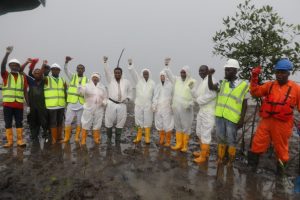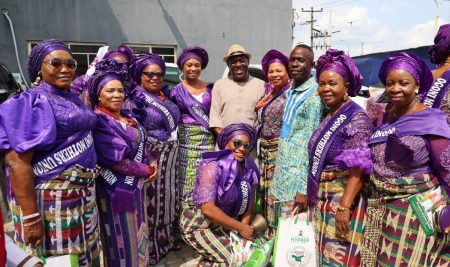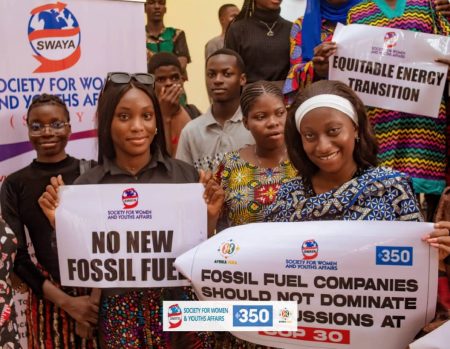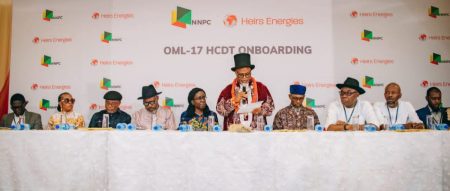
Mkpoikana Udoma
Port Harcourt — In a significant move to remediate oil-contaminated areas in Ogoniland, the Hydrocarbon Pollution Remediation Project, HYPREP, has sought a partnership with the Ford Foundation to restore mangroves in the region.
HYPREP Project Coordinator, Prof. Nenibarini Zabbey, made the call during a meeting with the Ford Foundation team in Port Harcourt, where he briefed them on various projects HYPREP was undertaking to alleviate the challenges faced by the Ogoni people.
Zabbey emphasized that mangrove restoration was crucial for achieving environmental sustainability in Ogoni, noting that HYPREP was currently restoring mangroves in 560 hectares of naturally attenuated mangrove areas, part of the world’s largest remediation of mangrove areas impacted by hydrocarbons.
Apart from mangrove restoration, he listed shoreline cleanup, land remediation, and provision of potable water, with 14 water schemes under construction to supply 68 Ogoni communities, noting that HYPREP had also trained 2,500 Ogoni women and youth in collaboration with the International Maritime Organization.
“We are undertaking the world’s largest mangrove restoration project in hydrocarbon-impacted areas, where natural attenuation processes have sufficiently reduced oil contamination to levels that can support new growth. Mangrove restoration is vital, not only for the environment but also for the livelihoods of the local communities.
“HYPREP has also empowered over 2,500 women and youths by training them in various environmental remediation techniques, including mangrove nursery establishment, through a partnership with the International Maritime Organisation,” he stated.
Zabbey emphasized that ensuring community involvement is essential to the long-term success of the project, which aims to foster inclusivity and prevent distractions that could derail progress.
“Communities are being directly involved in supplying mangrove seedlings, which will be planted by contractors, while locals are engaged in the cleanup operations. This ensures that the project is not only sustainable but also owned by the people,” Zabbey added.
Following a site tour of Lot 15, the shoreline cleanup zone, and the Centre of Excellence in Ogoni, Program Officer for Natural Resources and Climate Change in West Africa, Ford Foundation, Mr Emmanuel Kuyole, lauded HYPREP’s efforts and underscored the importance of remediation work in regions affected by oil extraction.
Kuyole added that environmental remediation is a difficult and expensive task but essential to restoring the health of the Niger Delta, and emphasized the need for collaboration between civil society, government, and local communities.
“We’re looking at how to support communities and people whose lives and livelihoods have been impacted by oil, gas, and mining extraction and how we can work with partners to make our contributions to address some of the challenges. Visiting HYPREP was an opportunity to see how the project is trying to address this.
“The mangrove restoration project was also something that we took particular interest in because the Niger Delta as we know it, of course, most people know the Niger Delta because of the oil and gas extraction but the Niger Delta is not just about oil; it is Africa’s largest wetland, with immense ecological value.
“If cleaned up, it could make a significant contribution to Nigeria’s and West Africa’s climate goals. Mangrove restoration plays a key role in this by acting as a natural carbon sink. We are committed to supporting initiatives that address the deep inequalities resulting from oil and gas extraction.”
On her part, Dr. Emem Okon, Executive Director of the Kebetkache Women Development and Resource Centre, pledged civil society’s continued efforts in sensitizing local communities and managing expectations.
Okon stressed that sustained community involvement would be key to the project’s long-term success.



